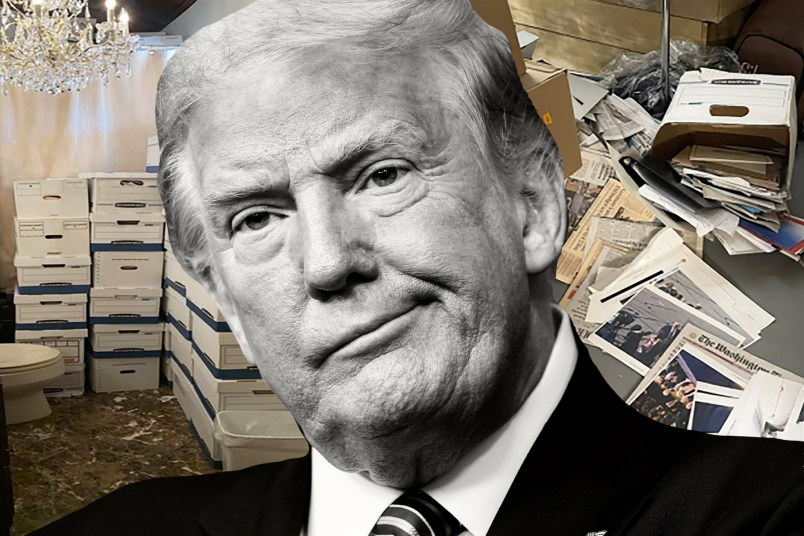There’s a new poll out from Politico Magazine/Ipsos the results of which are straight out of Obviousville. But surprisingly few people ever go to Obviousville. So those results are worth discussing. The central finding is that the parade of criminal charges against Donald Trump are not in fact good news, politically or individually, for Donald Trump. More specifically, majorities (albeit bare ones) of Americans want his trials to be held before the election (61%), believe he’s guilty (51%) and believe he should go to prison if convicted (50%).
Critically, Politico notes that a substantial minority of the population (between a quarter and a third) says they’re not that familiar with the charges against Trump. Since the charges – especially those in the Mar-a-Lago case – are quite strong as an evidentiary matter that suggests there’s plenty of room for things to get worse for Trump.
For all this, what struck me most in the poll is below the top lines. These 50% or 51% results suggest the same old split down the middle polarization we’re accustomed to. But that’s not quite it. 51% believe Trump is guilty. 26% believe he’s not. That’s pretty lopsided. 22% say they don’t know. 50% say Trump should go to prison if he’s convicted. 18% say he shouldn’t be penalized. The rest are split between probation and some financial penalty.
If you step back and ask how many respondents buy what we might call the Republican public line – that Trump’s innocent and the prosecutions are an abuse of power – only a bit over 20% of the population seem to buy that.
On the one hand these lopsided numbers might suggest that a full public accounting of the case against Trump could push the numbers who believe he’s guilty and should go to prison to go up dramatically. That’s probably not quite right. My hunch is that a substantial part of the ‘don’t know’ group is based on what we might call willed partisan uncertainty. In other words, people who really don’t want Trump to be guilty and are uncomfortable with what would seem to flow from that judgment. But they also can’t square the facts with any belief that he’s innocent. When push comes to shove partisanship has a way of shaping not only our opinions but also how we interpret the facts. I suspect partisanship will bring a significant proportion of those people around. But this still suggests that Trump’s potential support is at best shaky.
It should remind us that the iron wall of denunciation from Republican elected officials is less a measure of public sentiment even among Republicans and Republican-leaning independents than a fairly desperate effort to hold the line against any further deterioration of Trump’s support. Put it differently, and with more edge, they know he’s guilty. And thus the need to scream the opposite even more loudly.






